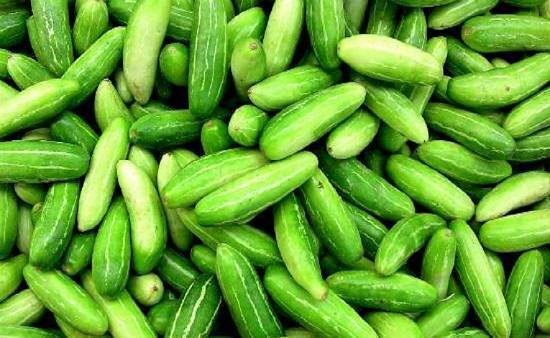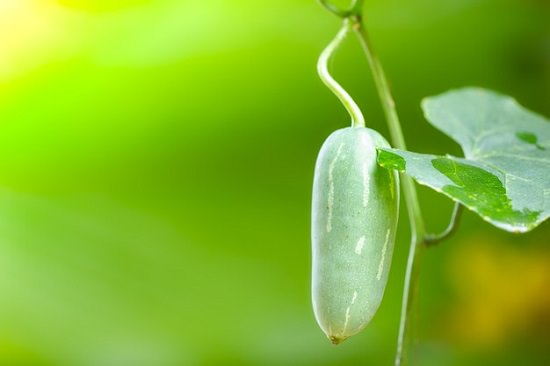Is Ivy Gourd Keto-Friendly? Find all about ivy-gourd and it being keto-friendly or not in this informative article.

Ivy gourd [Coccinia grandis] is a vine that thrives in tropical climates. The raw fruit is green and ripens to a bright red color. The fruit has a bitter melon taste. The leaves and fruit are popular in Asian cuisine and are known by a number of local names:
- Kovai Kai – Tamil
- Tendli – Hindi
- Papasan – Malaysia
- Telakucha – Bangladesh
Across India, it features in curries and is a common addition to sambhar and lentil dishes. To mask the bitter taste of the fruit once it ripens, a variety of nuts and spices are used. The gourd is cheap, readily available, and grows abundantly in the wild. You can even grow it at home, the vine only requires a sunny spot, well-drained soil, and a frame to support the creeping plant that can grow up to 13 feet high. The fruits are harvested just before they are fully ripe [orangish color] in 3 to 4 months.
Nutritional Information
It is a good source of nutrients, vitamins, and minerals: Iron, Calcium, Vitamin B2 [Thiamine] and Vitamin B1 [Niacin], and beta-carotene. Its dietary fiber content aids in digestion. Ivy gourd is a low-calorie vegetable as it has 18Kcal per 100g.
What is Keto Diet
The Keto diet first made its appearance in the 1920s as a therapy for epilepsy. It is a high-fat, low-carb method of eating that aims to put the body in a fasted state called ‘ketosis’. Our body uses glucose, from carbohydrates, as a primary energy source; the Keto diet follows a meal plan that’s 60-75% fat, 15-30% protein, and only 5-10% carbohydrates. This causes the body to turn to stored fat as an alternative fuel source, this process produces ketone bodies [ketogenesis].
The body enters a state of ketosis. The immense popularity of the keto diet comes from how quickly it cuts down total body fat compared to conventional [low fat] diets, producing faster weight loss results. The Keto diet has also shown positive results in the management of Type 2 diabetes, heart disease, Polycystic ovary syndrome, cancer, improves the outcome of traumatic brain injuries, and reduces the symptoms of Alzheimer’s disease.
Is Ivy Gourd Keto-Friendly

Yes! Owing to its low carbohydrate content, Ivy gourd and gourds in general are considered as good additions to the keto diet!
This in addition to its other health benefits makes it a very good component of our everyday diets.
Health Benefits
1. Blood Glucose
Evidence suggests that eating ivy gourd reduces post-prandial blood glucose and improves glucose tolerance. However, there is insufficient medical research to use ivy gourd in mainstream medical treatment.
2. Kidney Stones
The dietary calcium in ivy gourd reduces the risk of kidney stones.
3. Boosts Immunity
Vitamin B2 [Thiamine] found in Ivy gourd: strengthens the nervous system, maintains healthy metabolism by facilitating the conversion of carbohydrates to glucose. The vitamin also plays an important role in the production of red blood cells.
4. Aids Ailments
The use of ivy gourd in traditional medicine is remarkable. Different parts of the plant, the leaves, root, stem, and fruit, are used to treat a range of ailments, from snake bites, ringworm infestation, and also skin lesions to intestinal disturbances.
5. Anti-inflammatory
Alternative medicine utilizes ivy gourd as an anti-inflammatory, anti-convulsant, and also in the treatment of osteoarthritis.
Key components of the Keto diet
- Low-carb vegetables: leafy greens, cabbage, broccoli, cauliflower, peppers; the non-starchy Ivy gourd is a perfect addition to this list.
- Full Fat Dairy: yogurt, milk, and cheese products.
- Protein: beef, pork, fish, poultry, soybeans, eggs, and shellfish.
- Nuts and Seeds: walnuts, pistachios, sunflower and pumpkin seeds, and almonds.
- Healthy oils: extra virgin olive oil, coconut oil.
- Fruits (in moderation): berries, peaches, cantaloupe.
Precaution
Excessive ketone bodies can produce a dangerously toxic level of acid in the blood, called ketoacidosis. Long-term dieting can increase the risk of kidney stones, osteoporosis, and also gout. Seek medical advice before starting any diet.

